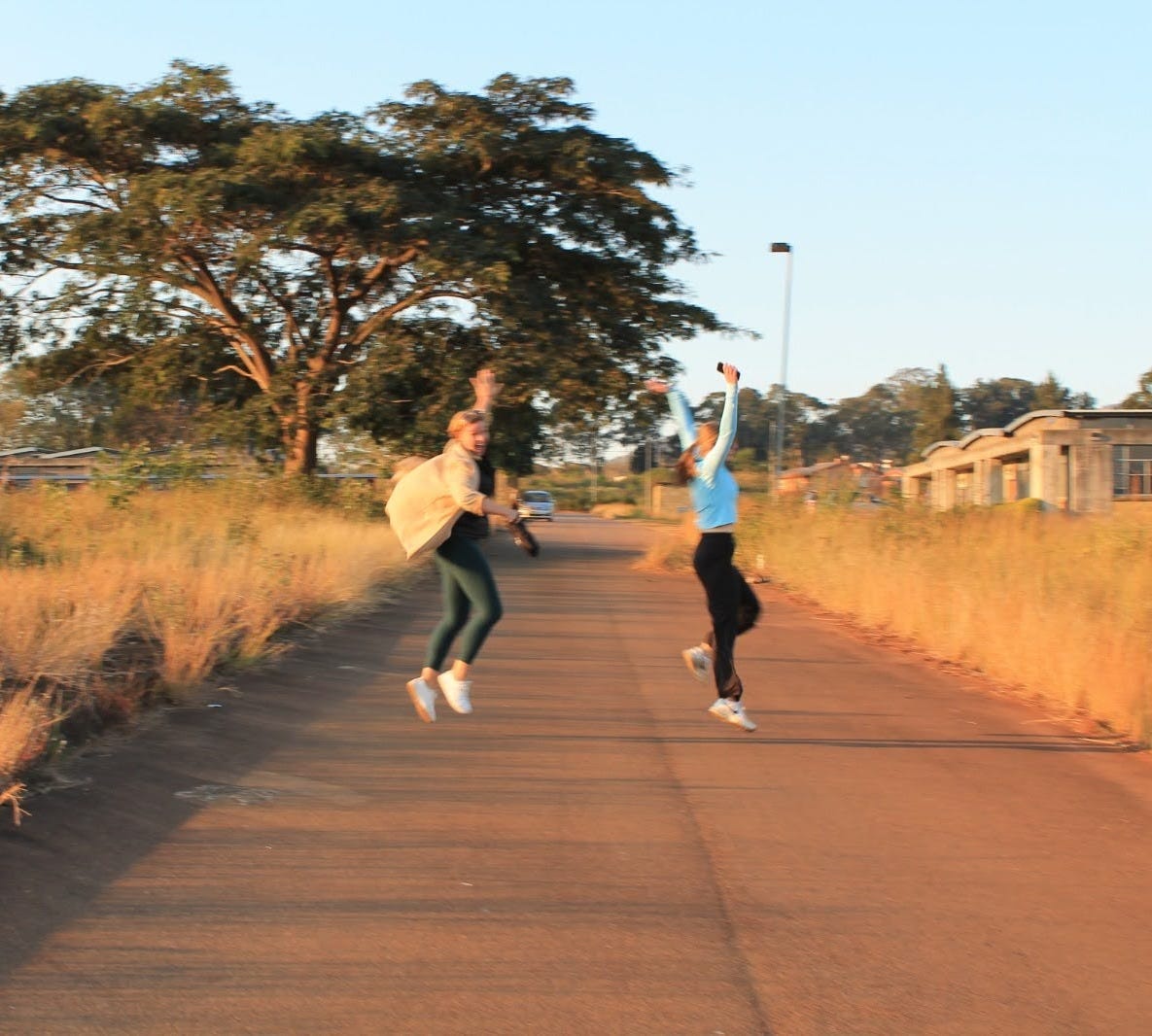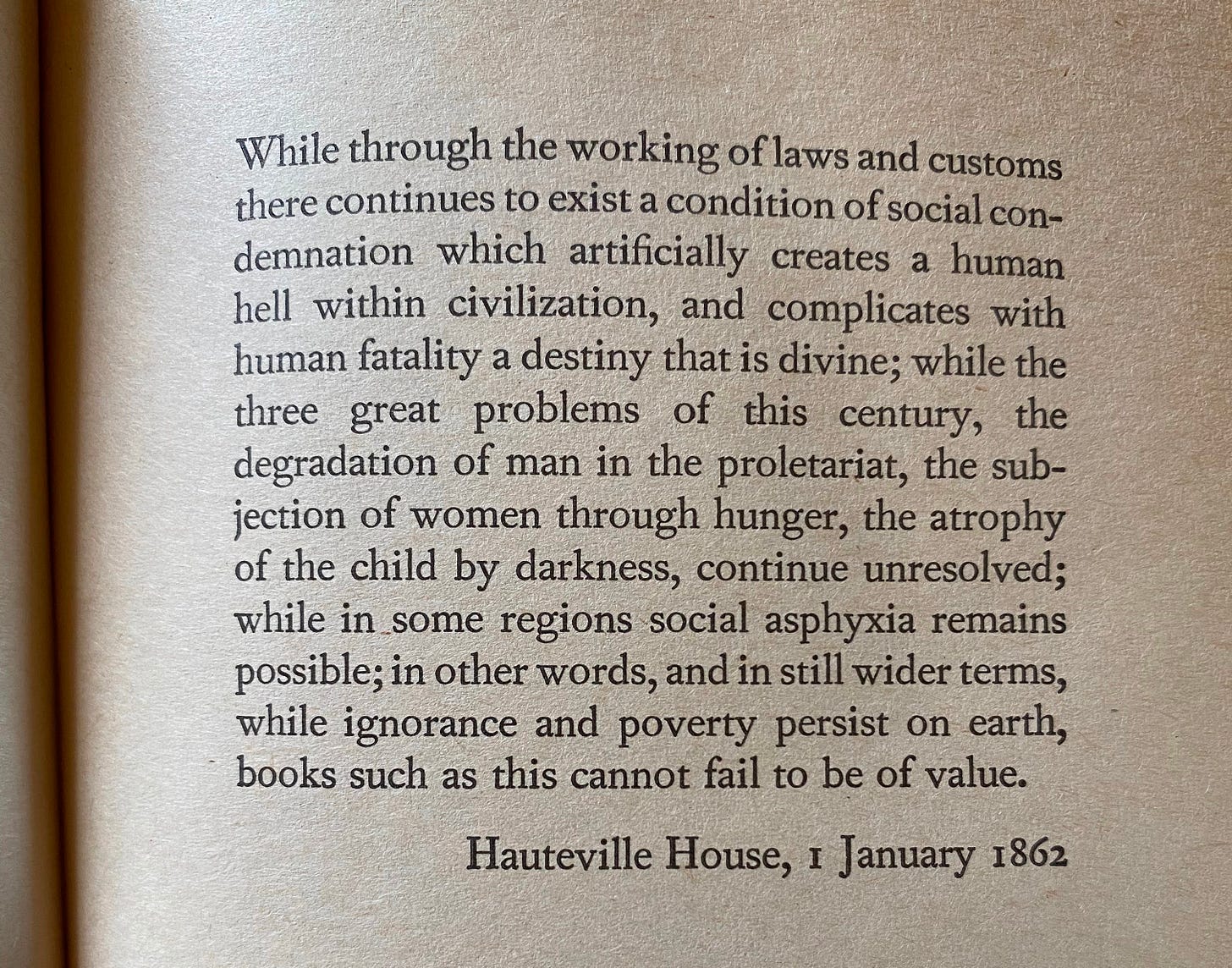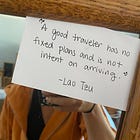INTRODUCING: Swazi Pacin' It.
NEW EDITIONS OUT MONDAYS: Weekly reflections as I slow down and observe what's happening in my life, from green valleys and red dirt roads of Eswatini.
The contents and opinions of this post are mine alone and do not necessarily reflect the views of the U.S. Government, the Peace Corps, or the Eswatini Government.
Ola Ola! (Sho sho)
Welcome to my new weekly newsletter: Swazi Pacin' It, where I slow down, observe, and reflect upon my experience as a volunteer living in rural Eswatini (formerly Swaziland).
It's time to sink in and reflect on my service journey: what have I learned, what's happening currently, and where I'm headed.
Usually, this would come in the form of a sporadic 2,000-4,000 word post that my impulsive self wouldn't edit until after I clicked “share”. But, in the light of all the craziness that never seems to stop spinning, I'm inviting structure into my otherwise chaotic habits.
What is the “Swazi Pace”?
Coming from the bustling world of hyper-productivity, speed, and dopamine hits, American society functions by keeping its inhabitants busy. While I have always happily danced within the hustle and bustle, I'm coming to understand the consequences of a body in a constant state of stimulation and glorified panic.
American life is a chase, especially in SoCal.
Don't get me wrong—as a runner, I love a good chase. My innate competitiveness lights me up like wildfire. This is likely one of the many things that had me running from humble Missouri to the Gold Coast. But in this American game, the chase is money. It's a tangible success. The consequence of falling behind the pack? Debt. The consequences of unshakable debt in American society? Our lives.
Since my debut into the adult world, I pounded pavement to keep a roof over my head, hoping I would make my car payment on time, dreading the resumption of student-loan payments, and praying to any higher power that would listen to please keep me healthy because my monthly $170 health insurance payments covered next to nothing.
In the beautiful beach town of Ventura, I juggled four jobs—bartending, teaching French, trying to create a community in the yoga world, and graphic design contracting—on top of a social life and a (lol) love life. In all the “empty” moments, I was running seaside, laughing breathlessly beside sunskinned friends, squeezing in a happy hour date between clock-ins, then racing to slow down in the yoga studio (the irony is not lost on me).
I simply couldn't rest outside of the confines of the sweat-splattered wall of the yoga studio. My incapability of genuine rest led to my dearest friends joking that I was inhuman. A comment I accepted proudly, as I twisted it to mean I could achieve anything—that I was energetically limitless.
To be honest, I was abundantly happy with this lifestyle. As long as my bills were paid and my friends were many.
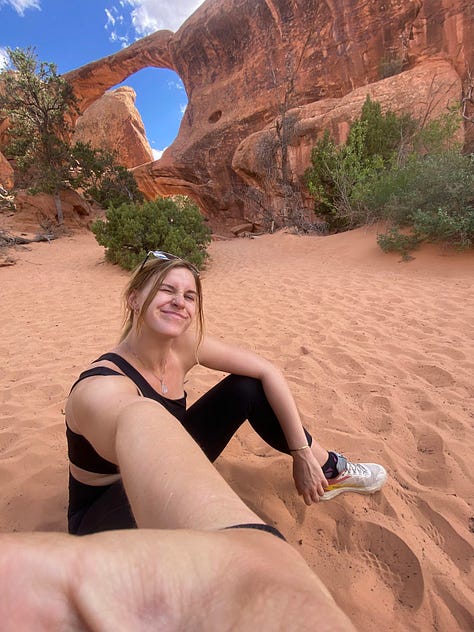
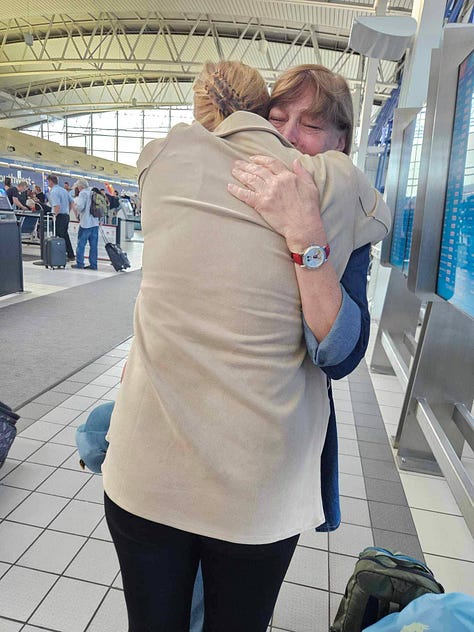

Ten months ago, my rhythm changed.
Ngacala kuhamba kancane.
I moved out of California to serve as a youth development volunteer in the southeastern African country of Eswatini. For the first three months, life SLOWED DOWN. In California, I was jumping from job to job to Zoom meeting at the gym to happy hour to date and back to job.
Suddenly, I was in a new country and had nothing to do but learn. I wasn't allowed to leave the small concrete square of the training compound for the first few weeks, nor was I tasked with cooking or even cleaning. No driving. No gym. No grocery shopping. Nothing.
And for me, this was a nightmare. There was nothing to keep me productive. I simply had to sit and listen to the distant echoes of Dali Wami and process in the darkness of my room as yet another lightning storm knocked out the power.
Thankfully, I still had a loaded schedule to occupy me. Every day, we began with an hour of learning Siswati, the local language. This is when my tutor introduced us to the concept of the “Swazi Pace”.
It began as a comment on the walking speed of my tutor and other staff members—an unhurried shuffle, barely lifting his polished shoes off the dirt as he slid the next small step forward. When we walked up hills, I watched him as each step was met with a full inhale and exhale. Unhurried. Unworried.
Combine this with the practice of greeting everyone he passed, exchanging short dialogues about the weather, and no one was getting anywhere quickly.
It was so painful.
This was a stark contrast to the volunteers’ determined, quiet, American quick-step. When the other volunteers and I walked to the local grocery store, we often found ourselves far in front of our leaders, walking at our American pace, hearts pumping, with our heads facing forward. We were on a mission.
Back then and, I must admit, even now, the Swazi Pace is painful to me. It is a way of moving that conserves energy. It's unhurried and unworried. It's the way many locals shuffle to their destination, greeting everyone they pass as long as they simply get to where they need to be.
But I have slowed down. I sat on the veranda with my Make and simply watched the khumbis drive up and down the main mountain. I've walked around the gardens looking for wild strawberries. I've spent entire weekends in my room, doing little more than writing, reading, and breathing. I've had a new shock of creative freedom and motivation without the American pressure of performance and efficiency.
And here, I'll keep track of the pace, and all the benefits of slowing down. Hopefully, when it's time for me to step back into Western life, I'll hold onto the lessons and find a balance of reflection, breath, and integrative productivity.
Without further ado, welcome to Swazi Pacin’ It! My new weekly newsletter!
Ngitawukhuluma ngani? // What will I share here?
Updates, photos, and stories from life tucked in the mountains of Eswatini
Key sections will be cultural and language remarks (to make sure I keep studying Siswati), what I did in school this week, personal revelations, what I'm reading, and what creative projects I've got going on!
This will be a collection of catch-ups and long-form stories.
Culture & Language //Lulwimi nemasiko
Here is where I'll share any new cultural aye, wena! moments, cultural notes, Swati or Zulu songs, or Siswati phrases I learned this week.
Catch this section next Monday, in the first edition Swazi Pacin’ It newsletter.
Work & Projects // Umsebenti kuleliviki
Projects and activities I'm working on in-country, including lesson plans, host-family habits, and community projects!
What does it mean to be a Youth Development volunteer in Eswatini? Guidelines and restrictions are shifting quickly in the life of an international volunteer. Any key updates to by position will be shared here.
Revelations // Loko lengakufundza
New lessons or reminders as I move through this new lifestyle and have time to reflect on my past twenty-seven years of life.
(SNEAK PEAK)
I'm not for everyone. This is a lesson that keeps throwing itself in my face time and time again. And it's broken up into two parts.
Part one: Not everyone deserves access to me. And I should not allow them unfettered access either. The reality of life is that we will not need to be friends with everyone. It's what makes friendships real… they're selective.
Part 2: I don't like everyone, and not everyone likes me. That's okay and normal. And I'm trying to come to terms with the fact that I can be kind and inviting to others, and they still may not like me. They still may be unkind. Not my problem or burden to carry.
Keep your head up. And if you can't keep your head there—if your chin still dips from the strain of faking it—surrender entirely and take a fucking nap. This. Exactly this. Everyday.
Scrolls & Pages
Loku lengikufundzako
What am I reading, what am I listening to? Here, I share my reading list and reviews of completed books. Look out for recommended Substack articles and authors in this section, as well!
(SNEAK PEAK)
Currently Reading:
Audiobook: Heir of Fire, Throne of Glass Series by Sarah J. Mass.
Book: Heat of the Everflame, Kindred's Curse Series by Penn Cole.
Background Book: Les Misérables by Victor Hugo.
Recent Reads:
Glow of the Everflame by Penn Cole. I blew through the first book in The Kindred's Curse Saga, Spark of the Everflame in less than twenty-four hours. I was hesitant at first, quickly tapping the screen of my Kindle to figure out where the story was going and when the FMC's childhood best friend-turned-lover would ungracefully fall out of the story or have his epiphany. The style at the beginning of the novel is slow, the writing style and plot matures page by page.
Last week, I wrapped up the third installment of The Legacy Series, Tempest of Wrath and Vengeance by Melissa K. Roehrich. I wish I could recommend this series, but it turns out I'm not a fan of dark romance. The first two books were infuriating, and the third book finally came in for some redemption. Every character is deeply flawed and angry—a villain in their own right. Roehrich creates complex characters with detailed backstories and reasons for their flaws, but it was difficult to root for any of the characters. Series: 1.5/5 stars for world-building. The third book, 3.5/5 stars for the new characters introduced and lack of one particular character.
Substack reads:
Substack posts and writers that I've enjoyed recently.
My Writing // Tindzaba Tami
Recent posts and upcoming work.
Keep a lookout on Friday for the Child of Kratos Series’ first public chapter! Since last January, I've been weaving a novel together as an outlet to make sense of the current global climate, the strength of emotions, and the effects of organized religion.
The story follows 20-year-old Cianna Blackwood, a training agent in the country of Clythedan. She has been designed and toned to be the best of her kind—a cunning intelligence agent meant to promote global order and peace in a rebuilding world. When a rival school must into Blackwood Academy as a result of a presumed terrorist attack, viewpoints of history and buried knowledge come to life. Cianna discovers that she has been unwittingly a part of a greater agenda.


